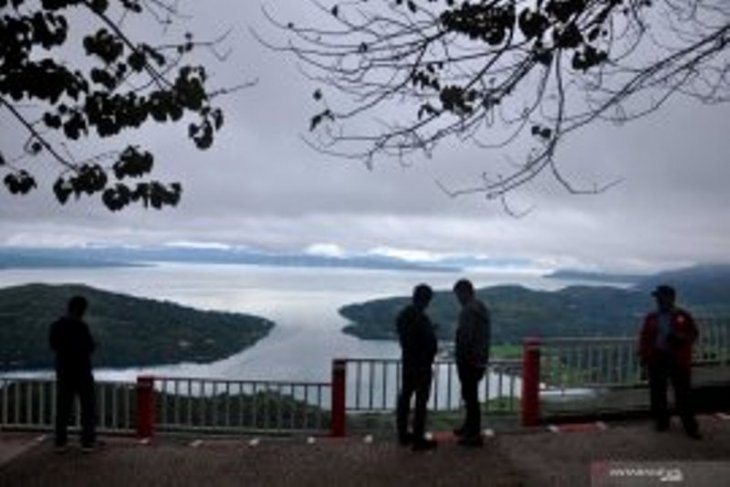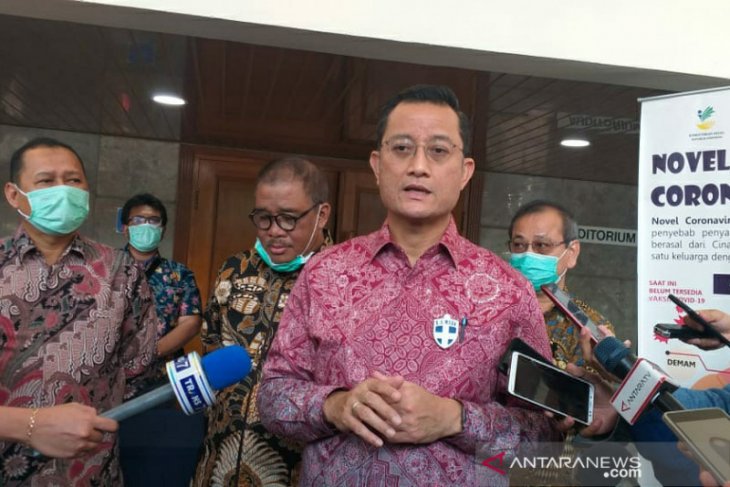Live Streaming
Program Highlight
Company Profile

Ani Hasanah
July
Indonesian Government to Reduce COVID-19 Socio-Economic Burden on Tourism Workers

Indonesia's government has pledged to help over 17 thousand tourism workers in North Sumatra currently reeling from the socio-economic impacts of the novel coronavirus disease (COVID-19) pandemic, the Province's Tourism Office Head, Ria Novida Telaumbanua, stated.
"The central and provincial governments have been striving to assist business players in the tourism sector and their workers severely hit by the COVID-19 outbreak," she informed local journalists in Medan, the capital of North Sumatra Province, on Tuesday.
To this end, the Ministry of Tourism/Creative Economy Agency has offered 16,100 packages of basic necessities and ready-to-eat food items for the affected tourism workers in North Sumatra, Telaumbanua remarked.
Right from the early phase of the COVID-19 outbreak, which initially struck the Chinese city of Wuhan at the end of 2019, and since then spread all across the globe, the tourism industry was the first and hardest-hit business sector in North Sumatra, she pointed out.
Speaking in connection with the reopening of tourist destinations in the province, Telaumbanua affirmed that the North Sumatra provincial administration had left the decision on the district and city governments since they were aware of the COVID-19-related situation in their administrative areas. (ANTARA)
July

Lecturer of the Medan State University's Faculty of Economics Armin Rahmansyah Nasution,SE,MSi . (ANTARA/HO)
A Medan State University (Unimed) economist believes that Indonesia can no longer overly rely on imports amid the ongoing COVID-19 pandemic but should instead focus on using domestic products.
"We can no longer pin too much expectations on imports since we are facing a current deficit account that has laid increasing pressure on the government budget," Armin Rahmansyah Nasution stated in connection with the impact of the COVID-19 pandemic on Indonesia's economy.
Apart from the current deficit account, the fact that the novel coronavirus pandemic continues unabated is also another aspect that should be taken into account for relying on domestic products rather than importing goods from other nations, he remarked in Medan, North Sumatra, on Tuesday.
Hence, all Indonesians should take pride in the products made in their own country.
"Let us give priority to our own products rather than purchase those made by foreign countries. The quality of several of our own products is also much better than those of other countries," he affirmed.
Nasution believes that opting to use Indonesian-made products would help the country become strong, well-developed, and self-sufficient in future
President Joko Widodo (Jokowi) had launched a national campaign, with the hashtag #BanggaBuatanIndonesia (Proud of the Indonesian Products), on May 14, 2020, in a bid to promote products made in Indonesia.
The national movement reflects the government's support and encouragement to Indonesians to use domestically made products, particularly during the COVID-19 pandemic.
In his remarks at the inauguration event held via videoconferencing on May 14, the president called on Indonesians to harness their strengths amid the COVID-19 pandemic.
"We must look again at what our strengths are. Once again, we need to delve deeper into what are our strengths and weaknesses. What is lacking, the shortcoming. Of course, we must immediately improve, and our strengths must be utilized," Jokowi remarked.
The president was appreciative of the immense strength and hard work of Indonesians while commending the nation's talent pool for having produced good-quality products.
The head of state averred that the pandemic could not stifle the creativity of Indonesians.
"To expedite the handling of COVID-19 in the health sector, we have succeeded in developing PCR test kits, rapid diagnostic test or RDT kits, and also ventilators and mobile BSL 2. We hope that by the end of May, all these innovations would already be mass-produced. Thus, we would not need to depend again on imported products," he affirmed.
Jokowi emphasized that Indonesia, as a vast nation, is proud of its people's creativity and innovations. (ANTARA)
July

Minister of Social Affairs, Juliari P Batubara, in Jakarta on Tuesday (June 30, 2020). (ANTARA/Desi Purnamawati)
Indonesian Social Affairs Minister Juliari P Batubara said his ministry has made headway in efforts to accelerate provision of social protection through social assistance programs since the beginning of the coronavirus outbreak in Indonesia.
"Actually, since the beginning of April, there have been quite a number of breakthroughs," he said in Jakarta on Tuesday.
The minister cited the provision of Cash Social Assistance for those living in the outermost areas in three phases, rather than once a month as originally planned, as an example.
"This means that the recipient no longer needs to go back and forth to the Post Office or the payment counter," he said.
In response to slow data gathering reported from regions, the Social Minister has instructed that data that is available from other regions be used instead so aid can be disbursed quickly.
The same would apply to the continuous distribution of social assistance, which was initially to be carried out from April to June this year, but will be continued until December.
The budget would also be increased, including for cash social assistance, with the addition of Rp16.2 trillion.
The Social Minister’s instructions for the regions have been arranged in a way that they do not cause any complications for local governments.
Earlier, at the Plenary Cabinet Meeting on June 18, 2020, President Joko Widodo had asked ministers to find ways to accelerate the handling of COVID-19. (ANTARA)
President Joko Widodo (Jokowi) highlighted that a new normal can solely be applied in regions with reportedly low cases of COVID-19 transmission backed by scientific data.
"We must not attempt to apply a new normal while it is in fact not possible based on the (COVID-19 cases) data. Do not force it. Hence, the stages must be prepared," President Jokowi remarked during his working visit to the COVID-19 Handling Command Post in Semarang, Central Java, on Tuesday.
Jokowi highlighted the significance of each regional head and Task Force for the Acceleration of Handling COVID-19 to hold scientific data.
Regional heads and the COVID-19 Task Force for the Acceleration of Handling must always involve practitioners, such as epidemiologists, scientists, and medical personnel, in the decision-making process, he noted.
"Do not ever open up to the new 'new normal' order without going through the appropriate steps. Every time we make a policy, please use scientific data," he remarked.
Prior to transitioning to the new normal, the local government must disseminate information to the public on the significance of adhering to health protocols.
Thereafter, regional heads and the local Task Force must decide on the right time to transition to the new normal era.
"Lest we dare to embark on the new normal while R-t is still high, above 1, and R-naught is still high. Be careful. Do not formulate policies that are not backed by clear scientific data," he noted. (ANTARA)


